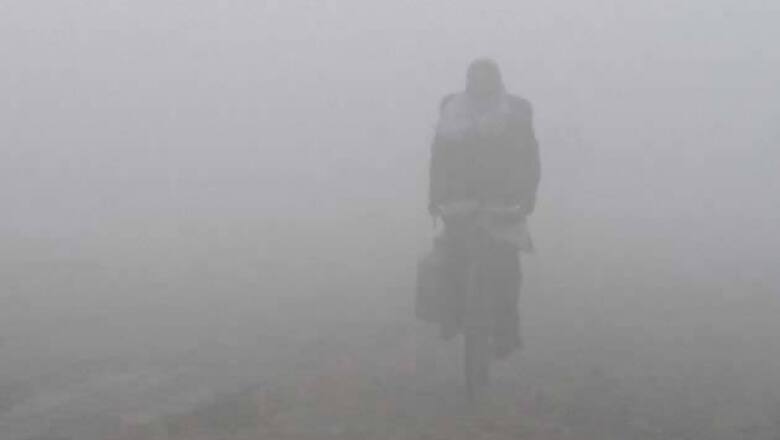
views
Agra: With the temperature dropping by each passing day and this Taj city enveloped in a misty fog in the morning, night shelters set up by voluntary groups are providing succour to the needy.
As official agencies usually keep dragging their feet citing a resource crunch for providing shelter to the homeless, some voluntary groups have chosen to rise to the occasion and set up shelters, called 'raen basera', a home for the homeless in the wintry nights.
An NGO that has for many years been sheltering those left out in the cold is now stepping up its effort.
"Last few nights some people, desperate and shivering, had to beat the cold by sitting outside near a bonfire to drive away the chill," Bankey Lal Maheshwari, who has a network of the Srinathji Nishulk Jal Sewa run raen baseras, told IANS.
He said a night shelter would also be opened at the Mathura bus stand soon.
At some shelters like those run by voluntary group like the Srinathji Nishulk Jal Sewa, apart from beds and clean quilts, there is an additional attraction of a bonfire and some jaggery and gram mix to relish.
"Earlier we used to distribute blankets to the needy, but we found that many of the beneficiaries were selling them," said Maheshwari, who has been running the Srinathji network of raen baseras and water huts in Agra, also known as the City of Taj, for three decades.
We used to open over a dozen night shelters but now the number has dwindled to five or six, as the municipal body also provides shelters during peak of winter.
"At the night shelters, people get free beds, clean sheets and quilts for around 70 days," Maheshwari said.
"Each shelter caters to at least 50 people. Those near the mental hospital and the SN Medical College can accommodate up to 100 guests," he added. Most Raen Baseras are simple, make-shift tented accommodation.
"Ask a person without shelter in this biting cold. For him, anything is good enough," says Surendra Sharma, of Hotel Goverdhan.
MC Gupta, a well-known physician in Agra, said, "Concern for such small needs of ordinary people rarely ever bothered our decision-makers."
Chandra Kant Tripathi, registrar of the Central Hindi Institute, who was chief guest at the opening of one such shelter, said, "Such acts of mercy and benevolence go a long way in not only helping the poor and the needy but also in enriching and ennobling ourselves."
The Srinathji network is funded by small donors. "Ours is not a registered body. We have no constitution, no formal structure. We sustain a network of raen baseras in winter and water huts in summer," Maheshwari said.
Maheshwari added that the cost of cowdung cakes and firewood, used for bonfire, have risen steeply, but efforts are on to ensure that the daily bonfire activity continues at least till January 26.
Some critics say drug addicts, drunkards, and even petty criminals take shelter in these "Raen Baseras".
To this allegation, Maheshwari says, "We cannot screen people. Our aim is to provide shelter to just about anyone without discrimination. It is the job of the police to trace the criminals."


















Comments
0 comment